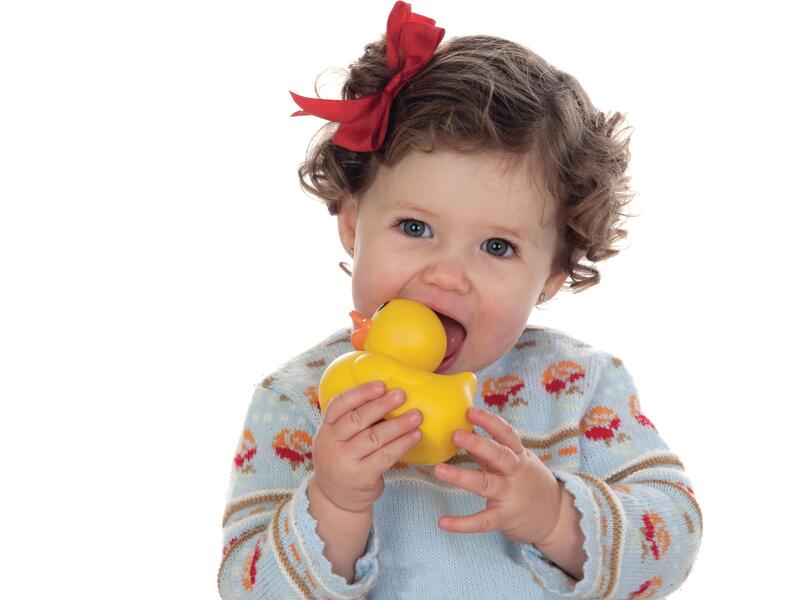It’s no fun when your toddler bites another child. It can make you feel frustrated, embarrassed or worried. However, biting is common for children ages 15 to 26 months old.
Why toddlers bite and what you can do
Biting is a way for toddlers to express their feelings, especially those who are still learning to talk. Below are possible reasons for biting and what to do:
- Lack of language skills. At this age, your toddler can’t always express what they are trying to communicate. Validate your child’s feelings, but let them know that biting isn’t OK. Help your toddler find words to express their needs, or point to what they want.
- Feeling stressed. Too much noise or activity or too many people can be overwhelming. Provide a quiet space for your toddler to play or relax. Offer a back rub to help your toddler calm down.
- Looking for a reaction. Stay calm when your toddler bites, and be sure to give attention for positive behaviors versus negative ones.
- Overly tired and irritated. Be sure your toddler gets plenty of rest, and avoid going to places with lots of activity when your toddler is tired.
- Teething and oral stimulation needs. Provide a cracker or cold washcloth for chewing needs.
How can you help prevent biting?
If you notice your toddler is about to bite:
- Distract your toddler with a toy, or take a walk together to shift your toddler’s attention away from biting.
- Give your toddler the words to use if someone is standing too close, touching him or her, or taking toys.
- Suggest how to share books and toys and how to take turns.
- Read books about biting with your toddler.
The dos and don’ts of biting
If you witness the biting:
- Do take action immediately.
- Say, “No biting! Biting hurts!” in a firm calm manner.
- Give your attention to the child who was bitten. This shows your toddler they won’t get attention for biting.
- Be patient and consistent with your toddler regarding behavior expectations.
Don’t bite your toddler back to teach a lesson
- This shows your child it’s OK to bite people when you’re upset.
- Shaming or harsh punishment doesn’t reduce biting. It just increases your toddler’s fear and worry, which can actually increase biting incidents.
Remember, biting is a typical behavior at this age. Identifying situations that lead to biting will help you find the best way to prevent biting. And be patient with your child. Learning a new behavior takes time.
Learn more
- Self-control is a struggle for toddlers
- Teething truths: Signs, symptoms and when baby may be sick
- Top toddler discipline strategies to try
…
Posted In Behavioral Health, Children's, Family Medicine, Parenting
